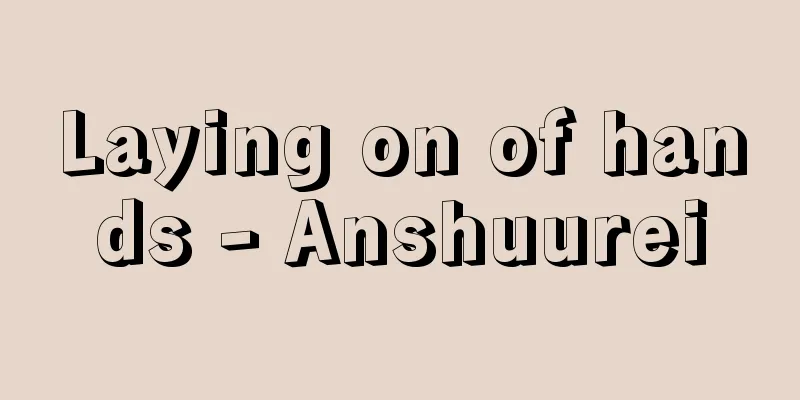River void - Kawakakebiki

|
During the Edo period, this meant exempting farmers from paying taxes on fields that had become uncultivable due to river levees collapsing. After the fields were restored, taxes were levied again. Source: About Shogakukan Digital Daijisen Information | Legend |
|
江戸時代、河川の堤防の決壊などのため耕作不可能となった田畑の年貢を免除すること。復旧後は再び年貢が賦課された。
出典 小学館デジタル大辞泉について 情報 | 凡例 |
Recommend
rhachitomous
…It belongs to the suborder Rhachitomus of the or...
Hay Point
…It is one of the tourist hubs of the Great Barri...
Kariya
...Ako Castle remains only in the form of stone w...
Facial tissue
…Tissue papers include glassine paper (a transluc...
Demographics
Humans live within social groups known as populati...
Empress Komyo's Prayer Sutra - Komyo Kogogankyo
Three types of sutras (tripitaka) are known that E...
Kediri Dynasty - Kediri
A dynasty (928/9-1222) that flourished in eastern ...
Arnim, Achim von
Born January 26, 1781 in Berlin [Died] January 21,...
Versailles - Versailles (English spelling)
The capital of the Yvelines department in norther...
Invoice - Panoramic
A restriction, such as a condition or time limit, ...
Rausu [town] - Rausu
A town in Menashi County, Hokkaido. It occupies th...
Photosensitivity Disorder
A general term for diseases in which exposure to s...
azalea argid sawfly
...Their habits are also very similar. The Azalea...
Detskoe Selo (English spelling)
...Population: 94,900 (1993). From 1728 to 1918 i...
Erbsünde (English spelling)
...and this is how sin, death, and curses entered...









